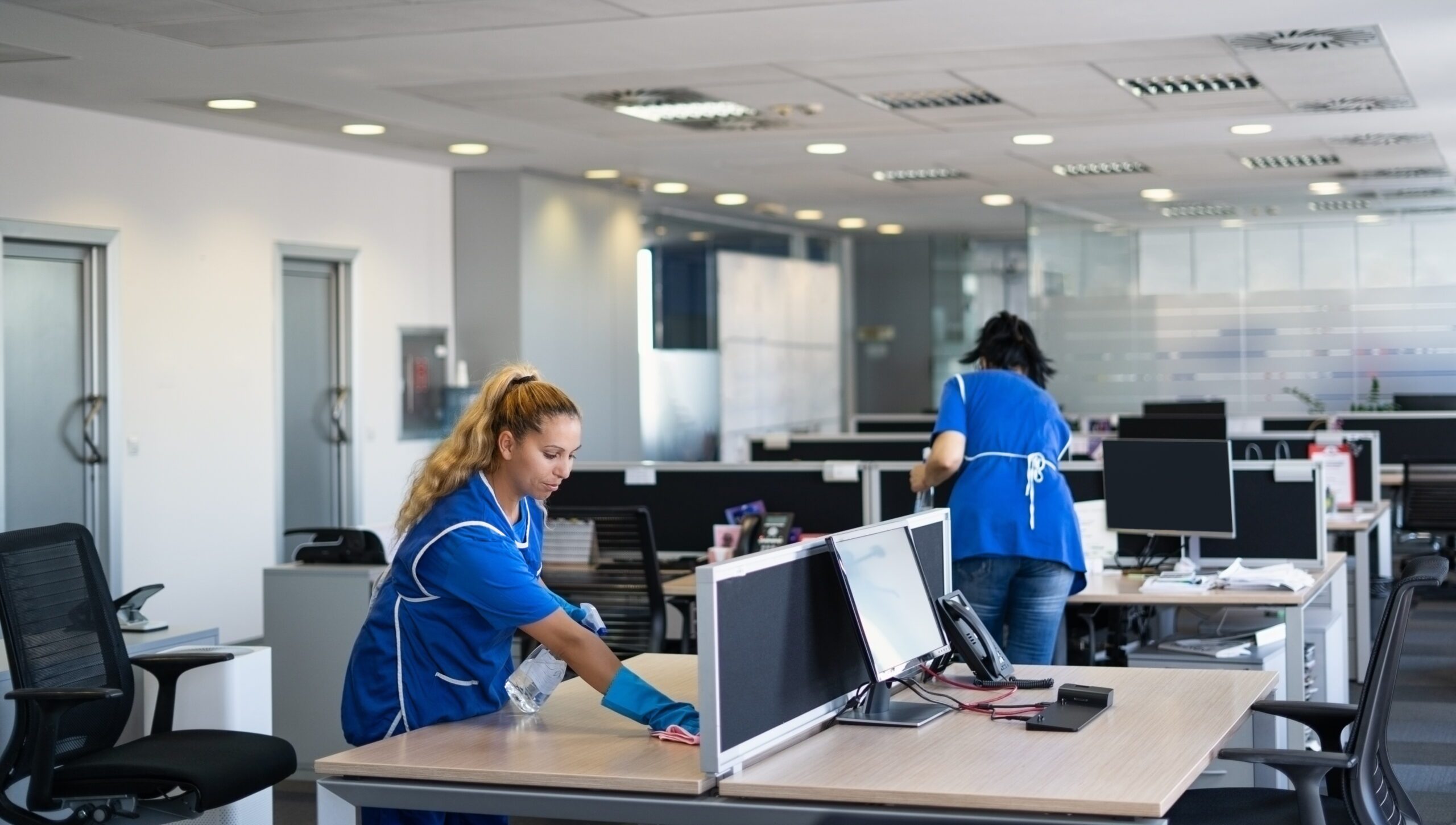During World Wellbeing Week, businesses across the globe are considering ways to prioritise the wellbeing of their staff. Many are focusing on mental wellbeing, offering mindfulness sessions or tools to reduce stress at work. But wellbeing stretches so much further than tackling anxiety and looking after mental health.

Physical workplace wellbeing matters
The physical comfort and wellbeing of staff is just as important. Staff have become accustomed to working in their own space, configurable to their own needs. If employers want to welcome staff back to their sites, they’re going to need to work hard to make sure their spaces are welcoming, comfortable and enticing.
We spend 90% of our time indoors, and for most of us, a massive chunk of that time is at work. As workers begin to trickle back to the office after more than a year spent at home, the expectations are higher than ever.
So it’s clear that worker wellbeing, both mental and physical needs to be at the heart of our working culture – but the real question is who is best placed to drive the workplace wellbeing strategy?
To answer this question, let's look at the components that contribute to worker wellbeing:
- Did you know that high CO2 levels in offices can reduce concentration by 23%?
- Or that noise reduction can lead to a 27% increase in staff productivity?
- Poor air quality can lead to ill health and £20 million of additional costs for businesses.
- A keyboard has more than 10 million types of bacteria growing on it, making it 400 times dirtier than a toilet seat.
- 40% of workers claim they feel distracted by a cluttered and dirty workspace.

FM should lead the charge for better wellbeing
If we’re putting wellbeing at the heart of every workplace culture, Facilities Management needs to be central to that. FM organisations are no longer the invisible workforce who clean during the quiet hours when everyone has gone home. They are in a prime position to lead on workplace wellbeing strategies.
Improving air quality
Poor air quality has contributed to 800,000 deaths in Europe. Air quality is one of the biggest concerns cited by workers returning to work post-Covid. The air quality in offices can be affected by 3 things:
- Fine particulate matter (such as dust or pollen)
- Gases (e.g. Co2, No2)
- Volatile organic compounds (cooking, paint, air fresheners)
Knowing sites as they do, FMs are best placed to say where heating, cooling, ventilation and filtration systems should be placed. They can use the data available to them to plan better airflow through high occupancy areas and ensure HVAC checks are undertaken at the right times to prevent issues from occurring.
Space utilisation
With an increase in the use of sensor technology and AI, it is easier than ever for FMs to measure and monitor space utlisation, and adjust services to reflect the need of the building and its users. Cleaning and sanitisation services may move to a far less scheduled routine, with services being deployed based on daily and weekly trends shown by data around when space is at its busiest.
Predictive technology
Another of the benefits of sensors and being plugged into the Internet of Things (IoT) is the ability to anticipate faults before they happen. Tracking machinery use and anomalies via digital data collection reduces downtime, saves energy and cost and helps equipment last longer. FMs have more information available to them than ever, meaning fewer breaks in the service they deliver, leading to an overall higher experience for staff and building users.
FM teams know their site better than anyone and can think about sites holistically. They’re involved in space design, have access to data and technology, and take care of the day-to-day requirements of their building and its occupants. It makes absolute sense for FMs to put wellbeing at the centre of their offering.
Covid has thrown Facilities Management into the spotlight and given FMs a seat at the table. Workplace Wellbeing is the perfect place for them to use that seat to shape strategy.